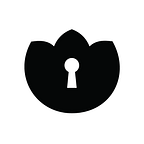Position Paper: Blockchain Technology
I am jaded.
For as long as I’ve been alive, I have been told that the future is now, that we are living in the most advanced time yet, and that all of the virtual worlds and artificial intelligences are just around the corner. This is true of my father as well, who read Neuromancer in his youth. In many ways, we live in the future already. We communicate through videos across the planet over webs of copper and glass. We have information systems which present the sum total of human knowledge, answering our every query as soon as we type words into a search box. We dwell in a digital age, and yet I occasionally encounter things that feel neolithic.
When I send a wire transfer internationally, it takes days to complete. When I sign contracts, I use a fax machine. If I want to store information, I have to design a distributed system and then trust someone with making sure the data is still there when I look for it. Identity is largely a fiction backed up by hundreds of years of institutional trust relationships. As someone who grew up with a 2800 baud modem, every question I’ve asked has been answered by a digital oracle, yet I constantly run into the vestiges of empires built long ago which don’t comprehend distributed systems. Specifically, I am constantly frustrated by the lack of a change log in transactions.
When I work with my bank, I want to track my money, but the interfaces for doing so are difficult or non-existent. When I work with my lawyer, I want to track my contracts, but it is extremely difficult to reason about a set of word documents with redlines through them. When I buy property, I want to know that the person who sold me something actually owns the thing they just sold. When I rent a facility to someone, I want to know that they have the requested insurance policy. As I’ve grown older, I’ve trusted institutions less and less to perform accounting of these details.
This is where blockchains come into play. A blockchain is a trustless ledger, one where the accounting is an agreed upon immutable social construct. When money changes hands on the blockchain, it has moved from one place to another. There is no wiggle room: money moves at the pleasure and velocity of the owner of the coin.
Money is just the simplest form of information we can store on this ledger though. If I write a contract onto a blockchain, it is there forever. I can only edit it by posting a new contract, but that doesn’t erase the old contract. In this way, the changes of contracts over time are visible, etched in digital stone. If someone takes out an insurance policy and the policy is written to the blockchain, they just need to give me the code for that line in the ledger and I can read the policy. I don’t need to call an insurance company that is only open from 10am to 5pm. I can verify all of the details without talking to a human, without installing an app, and without trusting a website I don’t own. This has never before in human history been possible.
The blockchain lets us scale trust by not trusting anyone. In a world of global citizens wherein trust is an increasingly rare commodity, openly acknowledging this fact and reducing trust to “go look at the chain” fundamentally alters the nature of most trusted transactions. A website can be hacked, an institution can be pressured by a government, a human can commit fraud, but, by design, the blockchain is immutable.
We have never had a transactional akashic record before and we will never go back to a world without one.
